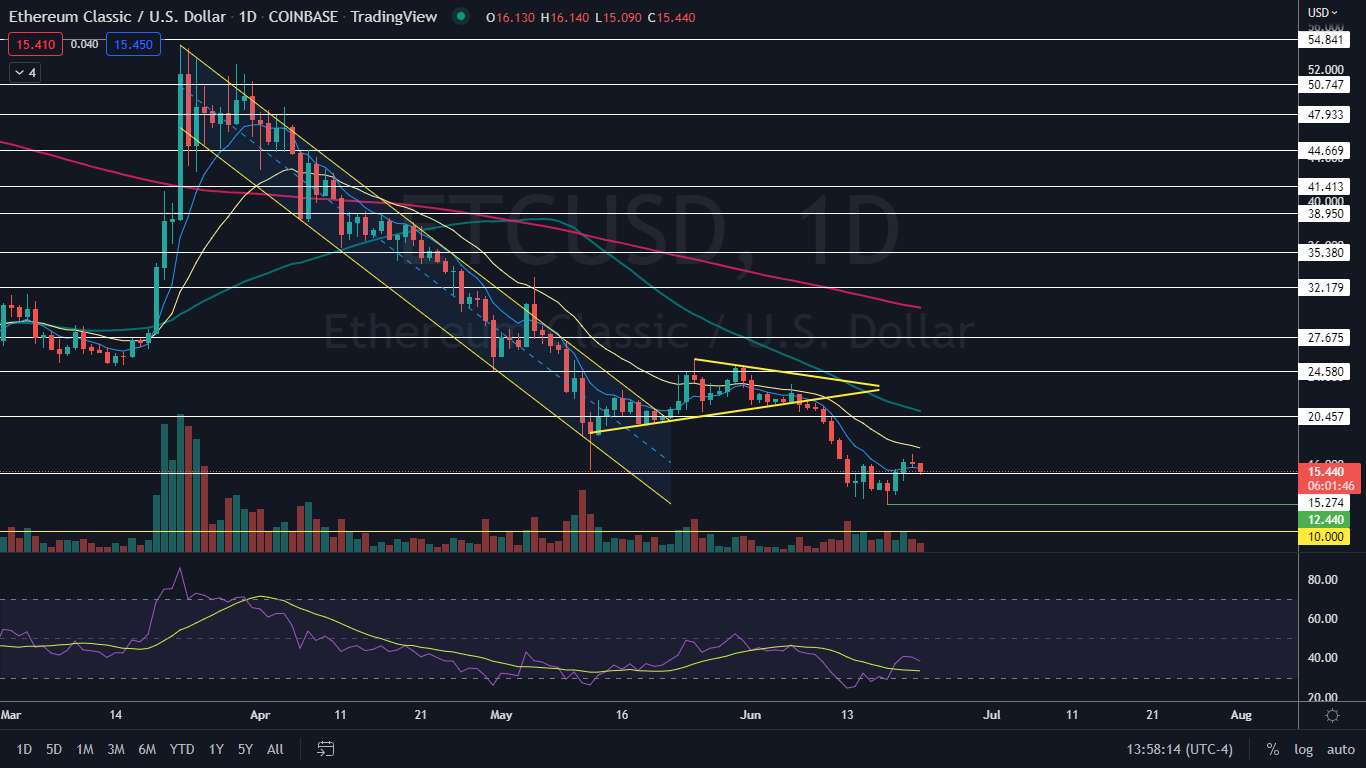
Ethereum Classic (CRYPTO: ETC) was trading about 5% lower on Wednesday, in sympathy with Bitcoin (CRYPTO: BTC) and Ethereum (CRYPTO: ETH), which were sliding over 2% and 4%, respectively.
Ethereum Classic provided a relief bounce for traders between June 18 and June 21, soaring 36% to top out at the $16.97 level on Tuesday. The move higher over that timeframe negated the downtrend Ethereum Classic had been trading in since May 25, but an uptrend has yet to be confirmed.
Brief uptrends occur in every bear market and although crypto is currently experience a winter season, the crypto looks set to trade higher over the short-term if it can print a higher low over the coming days, which would set it into an uptrend.
An uptrend occurs when a stock consistently makes a series of higher highs and higher lows on the chart.
The higher highs indicate the bulls are in control, while the intermittent higher lows indicate consolidation periods.
Traders can use moving averages to help identify an uptrend, with rising lower time frame moving averages (such as the eight-day or 21-day exponential moving averages) indicating the stock is in a steep shorter-term uptrend.
Rising longer-term moving averages (such as the 200-day simple moving average) indicate a long-term uptrend.
A stock or crypto often signals when the higher high is in by printing a reversal candlestick such as a doji, bearish engulfing or hanging man candlestick. Likewise, the higher low could be signaled when a doji, morning star or hammer candlestick is printed. Moreover, the higher highs and higher lows often take place at resistance and support levels.
In an uptrend the "trend is your friend" until it’s not, and in an uptrend there are ways for both bullish and bearish traders to participate in the stock:
- Bullish traders who are already holding a position in a stock can feel confident the uptrend will continue unless the stock makes a lower low. Traders looking to take a position in a stock trading in an uptrend can usually find the safest entry on the higher low.
- Bearish traders can enter the trade on the higher high and exit on the pullback. These traders can also enter when the uptrend breaks and the stock makes a lower low, indicating a reversal into a downtrend may be in the cards.
Want direct analysis? Find me in the BZ Pro lounge! Click here for a free trial.
The Ethereum Classic Chart: On Tuesday, Ethereum Classic printed a higher high above the June 15 lower high of $16.11, which negated the downtrend. On Wednesday, the crypto was pulling back on lower-than-average volume, which indicates healthy consolidation.
- Bullish traders can watch for the crypto to print a reversal candlestick above the most recent lower low of $12.44, which was formed on June 18 to indicate a new uptrend will begin. Bearish traders want to see big bearish volume come in and drop Ethereum Classic down to print another lower low, which would suggest the relief rally was a bull trap.
- If Ethereum Classic closes the 24-hour trading session near its low-of-day price, the crypto will print a bearish Marubozu candlestick, which could indicate lower prices will come again on Thursday. If Ethereum Classic is able to rise up toward the end of the trading session to form a lower shadow, the crypto will print a hammer candlestick, which could indicate the higher low is in, and the crypto will trade in an uptrend.
- Ethereum Classic has resistance above at $20.45 and $24.58 and support below at $15.27 and $12.44.

Photo: Courtesy of ETC on Flickr







